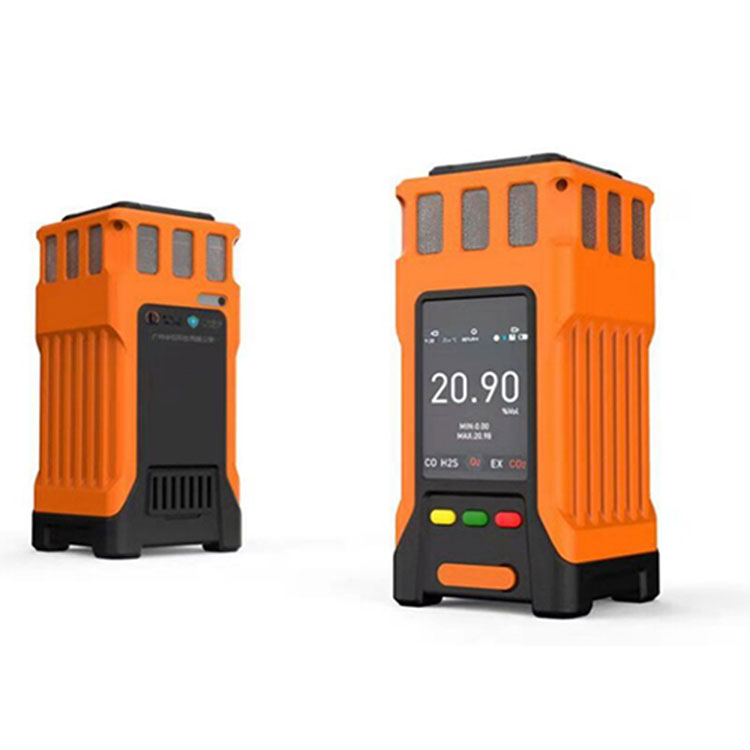Application of Gas Analyzer in Industrial Production
2025-06-25
Gas analyzers are instrumental tools in industrial production processes, providing critical data on the composition and quality of gases used or emitted during manufacturing. These devices measure various gas parameters such as concentration, pressure, and temperature, ensuring compliance with safety, environmental, and quality standards. Gas analyzers are integral in a wide range of industries, from petrochemical to food processing, power generation, and more. This essay explores the significance and applications of gas analyzers in industrial production, highlighting their role in optimizing efficiency, ensuring safety, and promoting sustainability.
1. Optimization of Production Processes
Gas analyzers are widely used in industrial production to monitor and control the composition of gases involved in manufacturing. In chemical processing industries, such as petroleum refining or natural gas production, precise control over gas composition is essential for ensuring product quality and efficiency. For instance, in catalytic cracking processes, gas analyzers monitor the levels of hydrocarbons, oxygen, and other gases to optimize the reaction conditions and maximize product yields.
In industries like steel and cement manufacturing, gas analyzers also help regulate combustion processes. By monitoring the levels of oxygen, carbon monoxide, and nitrogen in the flue gases, plant operators can adjust fuel inputs to achieve optimal combustion efficiency. This not only reduces energy consumption but also minimizes the release of harmful emissions.
2. Safety and Hazard Prevention
Gas analyzers play a critical role in maintaining workplace safety in industries where hazardous gases are used or produced. In petrochemical and chemical plants, for example, the presence of flammable gases like methane or hydrogen can pose serious risks to workers and the environment. Gas analyzers are used to detect leaks and monitor gas concentrations in real-time, providing early warning signals for potential hazards.
In confined spaces, such as tanks or silos, gas analyzers are employed to monitor the presence of toxic gases like ammonia, carbon dioxide, or hydrogen sulfide, which can be life-threatening. Real-time data from these analyzers allow workers to take corrective action, either by increasing ventilation or evacuating the area, thus preventing accidents and ensuring the safety of personnel.
3. Environmental Compliance
One of the most significant applications of gas analyzers in industrial production is in environmental monitoring and compliance with regulatory standards. Industrial facilities are often required to monitor the emissions of pollutants, such as sulfur dioxide (SO2), nitrogen oxides (NOx), carbon dioxide (CO2), and volatile organic compounds (VOCs), to ensure they do not exceed legally permissible limits.
Gas analyzers enable continuous monitoring of stack emissions, helping plants comply with environmental regulations set by governmental agencies such as the Environmental Protection Agency (EPA) in the United States or the European Union’s industrial emissions directive. By detecting pollutants at low concentrations, these devices allow facilities to take corrective measures, such as adjusting combustion processes or installing pollution control equipment, to minimize their environmental impact.
Moreover, gas analyzers contribute to the reduction of greenhouse gas emissions, supporting industrial efforts to mitigate climate change. Accurate monitoring of CO2 emissions helps industries identify areas for improvement in energy use and adopt greener technologies, such as carbon capture and storage (CCS).

4. Quality Control in Food and Beverage Production
In the food and beverage industry, gas analyzers are essential for ensuring the quality and safety of products. Carbon dioxide and oxygen levels are particularly important in food packaging processes, such as modified atmosphere packaging (MAP), where the atmospheric composition is altered to extend the shelf life of perishable items. Gas analyzers are used to monitor and control the gas mixture in packaging environments, ensuring optimal conditions for preserving the freshness and quality of food.
Additionally, gas analyzers are used in fermentation processes, such as brewing, to monitor the concentrations of gases like CO2 and oxygen, ensuring that fermentation occurs under the correct conditions. The precise control of gas levels ensures that the final product meets quality standards and that production yields are maximized.
5. Energy Management in Power Generation
In power plants, particularly those fueled by natural gas, coal, or biomass, gas analyzers play a crucial role in optimizing energy production. The efficiency of combustion processes directly impacts fuel consumption and emissions, making the real-time monitoring of gases essential for energy management.
Gas analyzers are used to monitor combustion gases such as oxygen, carbon monoxide, and NOx, helping plant operators adjust fuel input and air supply to maximize combustion efficiency. By maintaining optimal combustion conditions, power plants can reduce energy costs, enhance the overall efficiency of the system, and minimize emissions, thereby contributing to sustainability goals.
6. Leak Detection in Critical Systems
Industrial production systems often use gases in critical processes, and even small leaks can have significant consequences. Gas analyzers are employed in leak detection systems, where they continuously monitor for trace amounts of gas in pipes, valves, and other infrastructure. For example, in refrigeration systems, gas analyzers detect leaks of refrigerants, ensuring that systems remain fully operational and compliant with environmental standards.
Gas analyzers are also vital in the pharmaceutical industry, where the purity of gases used in production must meet stringent standards. Detecting impurities or leaks in systems that handle gases like nitrogen, hydrogen, or oxygen is critical to maintaining product quality and preventing contamination.
Conclusion
Gas analyzers are indispensable tools in modern industrial production, offering a wide range of applications that enhance efficiency, safety, quality, and environmental sustainability. From optimizing production processes to ensuring compliance with safety and environmental standards, these devices provide invaluable real-time data that helps industries reduce costs, improve product quality, and minimize environmental impact. As industries continue to adopt more sustainable practices and face stricter regulatory requirements, the role of gas analyzers in industrial production is expected to grow even more vital, driving innovation and progress across various sectors.
As a professional manufacturer and supplier, we provide high-quality products. If you are interested in our products or have any questions, please feel free to contact us.


